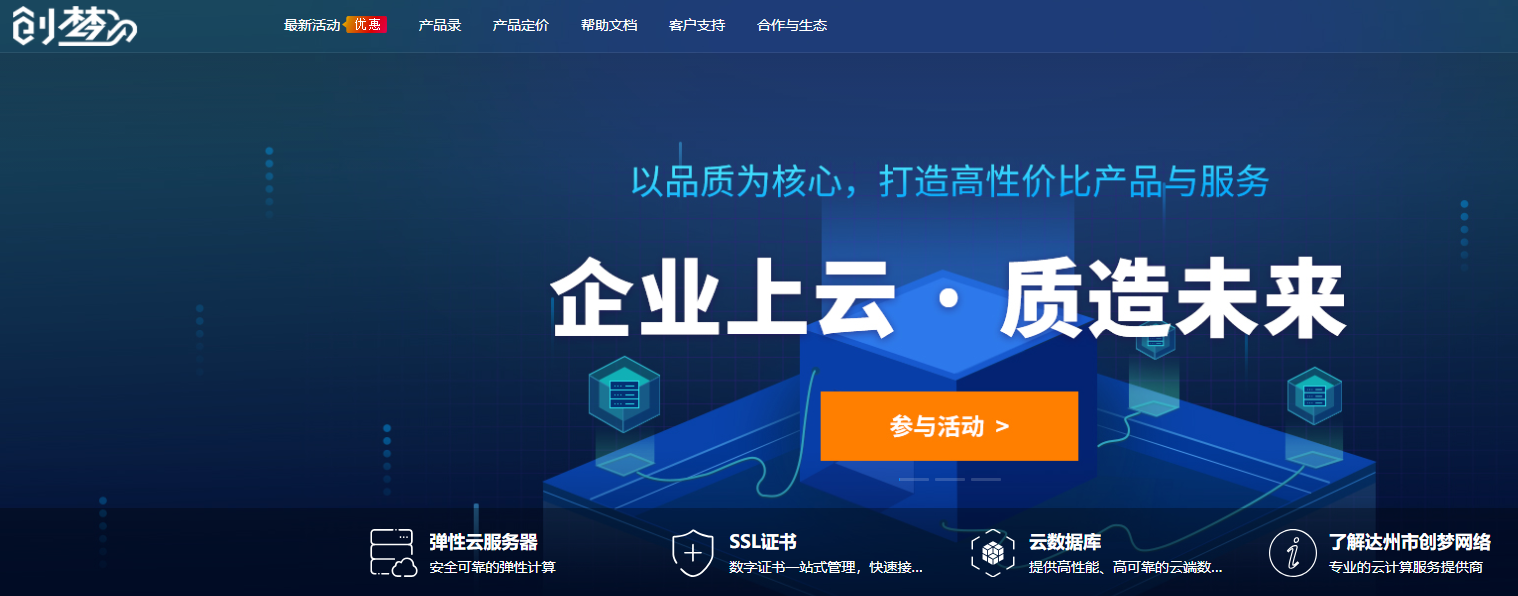volumepcpie
pcpie 时间:2021-01-27 阅读:()
ECONOMICDECISION-MAKINGINACHANGINGWORLDEditedbyG.
A.
CollenteurAssistantProfessorofEconomicandSocialHistoryUniversityofGroningen,TheNetherlandsandC.
J.
JepmaProfessorofEconomicsUniversityofGroningen,TheNetherlandsPalgraveMacmillanEconomicDecision-MakinginaChangingWorldISBN978-1-349-11146-6ISBN978-1-349-11144-2(eBook)DOI10.
1007/978-1-349-11144-2G.
A.
CollenteurandC.
J.
Jepma1993Softcoverreprintofthehardcover1stedition1993Allrightsreserved.
Forinformation,write:SeholarlyandRefereneeDivision,St.
Martin'sPress,Ine.
,175FifthAvenue,NewYork,N.
Y.
10010FirstpublishedintheUnitedStatesofAmericain1993ISBN978-0-312-04636-1LibraryofCongressCataloging-in-PublieationDataEconomicdecision-makinginaehangingworld/G.
A.
CollenteurandC.
J.
Jepma.
p.
cm.
Inc\udesbibliographicalrefereneesandindex.
ISBN978-0-312-04636-11.
Internationaleeonomicrelations.
2.
Competition,International.
3.
Corporatestrategy.
I.
Collenteur,G.
A.
,1953-.
11.
Jepma,C.
J.
HF1359.
E251993337--de2092-25574CIPContentsNotesontheContributorsIntroductionPart1RecentMethodologicalDevelopmentinDecision-MakingProcessesFortyYearsofEconomicDecision-MakingG.
F.
W.
M.
Pikkemaat2BusinessFinance:DealingwithUncertaintyJ.
L.
Bouma3InformationPlanninginaChangingWorldT.
Huppes4InformationandIntelligence:MisunderstandingManagementH.
G.
SolPart11TheChangingPatternofEconomicRelationsbetweenEurope,USAandJapan5TheCoordinationofEconomicPolicyamongtheMajorixxiii3133248WesternBIoes:theEuropeanPerspective63F.
HJ.
J.
Andriessen6CooperationwithEuropeandJapan:AnAmericanPe~pective73R.
Solomon7TheRoleoftheJapaneseEconomyinaChangingWesternWorld79S.
FukukawaVIContents8IndustrialPoliciesandPoliticalDemoeraeyP.
deGrauwePartIIIIncreasedInternationalFinancialInterdependency9GlobalEeonomieRelationsbetweenEurope,Japanand90theUSA105H.
O.
C.
R.
Ruding10FinaneialInnovations:NewOpportunitiesorNewRisks113w.
F.
Duisenberg11TheOetober1987Crash:AWorldwidePhenomenon124L.
C.
ThurowPartIVTheChangingInternationalInvestmentClimate12ForeignDireetInvestmentProspeetsforMultinationalCompanies131H.
Meij13InternationalInvestmentsandRisingProteetionism139L.
J.
Emmerij14SomeWaysoutoftheDebtCrisis154H.
deHaan15AssetTradingandDebtConversion160F.
D.
vanLoonPartVIncreasedInstabilityinInternationalBankingandFinance16TheRoleoftheEuropeanBankingSystemintheInternationalFinaneialMarketsM.
Endres175ContentsVll17InaSpin:Europe'sStockMarkets183R.
Hornett18Decision-MakingintheForeignExchangeandBondMarkets190D.
Morrison19Decision-MakingatRobeccoJ.
J.
vanDuijnPartVINewRequirementsforBusinessCompetitiveness20MultinationalsinaCompetitiveEnvironment:theCaseofPhilipsIndustriesJ.
J.
Tuyt21CommunicationinaCompetitiveInternationalEnvironment:TrendsandExpectationsL.
G.
Pringle22InformationandManagementDecision-Making1.
Lindelow23DiagnosingCompetitionP.
SH.
LeefiangAppendix:InvestmentinEuropeE.
BalladurReferencesIndex202215222230239264266272NotesontheContributorsF.
H.
J.
J.
AndriessenisVice-PresidentoftheCommissionoftheEuropeanCommunities.
E.
BalladurwasformerlyFrenchMinisterofFinance.
J.
L.
BoumaisProfessorofBusinessFinanceattheUniversityofGroningen,TheNetherlands.
G.
A.
CollenteurisAssistantProfessorofEconomicandSocialHistoryattheUniversityofGroningen,TheNetherlands.
J.
J.
vanDuijnismemberoftheBoardofDirectorsoftheRobecoGroup,Rotterdam,TheNetherlands.
W.
F.
DuisenbergisPresidentofDeNederlandscheBank,Amsterdam,TheNetherlands.
M.
EndresismemberoftheBoardofDirectorsofDerDeutscheBank,Frankfurt,Germany.
L.
J.
EmmerijisPresidentoftheOECDDevelopmentCentre.
S.
FukukawaisSeniorAdvisorattheJapanIndustrialInstitute,Tokyo,Japan.
P.
deGrauwewasProfessorofEconomicsattheUniversityofLouvain,Belgium.
H.
deHaanisProfessorofEconomicsattheUniversityofGroningen,TheNetherlands.
R.
HornettworksforSASSOONEuropeLtdLondon,UK.
T.
HuppesisProfessorofEconomicandSocialAspectsofInformationTechnologyattheUniversityofGroningen,TheNetherlands.
ixxNotesontheContributorsC.
J.
JepmaisProfessorofEconomicsattheOpenUniversityandattheUniversityofGroningen,TheNetherlandsP.
S.
H.
LeeflandisProfessorofMarketingattheUniversityofGroningen,TheNetherlands.
J.
LindelowisSeniorVice-PresidentUnisys,BlueBell,Pennsylvania,USA.
F.
D.
VanLoonisDirectoroftheEmergingMarketsGroup,NMBPostbankGroep(NL).
H.
MeijwasformerlyMemberoftheBoardofGovernorsatUnileverNV,TheNetherlands.
D.
MorrisonisManagingDirectorofGoldmanSachsInternationalCorporation,London,UK.
G.
F.
W.
M.
PikkemaatwasformerlyProfessorofMathematicalEcon-omicsandDeanoftheDepartmentofEconomicsattheUniversityofGroningen,TheNetherlands.
L.
G.
PringleisExecutiveVice-PresidentofBBDOWorldwide,London,UK.
H.
G.
SolisProfessorofInformationalSystemsattheUniversityofDelft,TheNetherlands.
R.
SolomonisGuestScholarattheBrookingsInstitution,Washington,DC,USA.
L.
C.
ThurowisProfessorofEconomicsattheMassachusettsInstituteofTechnology,USA.
J.
J.
TuytismemberoftheGroupCouncilofNVPhilips,Eindhoven,TheNetherlands.
ListofTermsandAbbreviationsABECORASEANBISBrettonWoodsBSPCAPMCASECEOCOMECONCSFmethodDBSDSSEBICECECUEDPEFTAEMHEMSENIACESEUPEuropartnersFDIGATTGDPGNPsystemAssociatedBanks'sofEuropeCor-porationSAAssociationofSouthEastAsianNa-tionsBankforInternationalSettlementsPostwarsystemofexchangerates,basedontheAmericandollarasinternationalcurrencyBusinessSystemPlanningCapitalAssetPricingModelComputerAidedSystemEngineeringChiefExecutiveOfficerCouncilforMutualEconomicAidCriticalSuccessFactormethodDirectBroadcastingSystemDecisionSupportSystemEuropeanBank'sInternationalCom-panySAEuropeanCommunityEuropeanCurrencyUnitElectronicDataProcessingEuropeanFreeTradeAssociationEfficientMarketsHypothesisEuropeanMonetarySystemfirstcomputer(USA,1946)ExpertSystemExpectedUtilityParadigmaEuropean'bankingclub'ForeignDirectInvestmentGeneralAgreementonTariffsandTradeGrossDomesticProductGrossNationalProductxiXIIICIMIMFISITJETROLDCM3MISMITMITIMNCMRNICN-generationODAOECDOEECOICOPECOPTOSPCPIEPPPPTTR&DRSSCASDRSPPSWIFTList0/TermsandAbbreviationsIntegratedCircuitInformationManagementInternationalMonetaryFundInformationSystemInformationTechnologyJapanExternalTradeOrganisationLessDevelopedCountryMoneySupply(broadedition)ManagementInformationSystemMassachusettsInstituteofTechnol-ogy(Japanese)MinistryofInternationalTradeandIndustryMultinationalCompanyManagementReportingsystemNewlyIndustralisingCountryNextgenerationOfficialDevelopmentAidOrganisationforEconomicCoopera-tionandDevelopmentOrganisationforEuropeanEconomicCooperationOrganizationalInnovationforCom-petitivenessOrganisationforPetroleumExport-ingCountriesOptionPricingTheoryObjectSystemPersonalComputingPrice/EarningsPurchasingPowerParity(Dutch)PostalTelephone&Tele-graphCompanyResearchandDevelopmentRealSystemSustainableCompetitiveAdvantageSpecialDrawingRightsStrategicPlanningProcessaworldwideinterbankcomputernet-workTPUruquayRoundListofTermsandAbbreviationsXlllTransactionProcessingsystemLatestroundoftradenegotiationsinGATTIntroductionTHESCOPEOFTHECONFERENCEANDTHECONFERENCETHEMEThisvolumecontains24contributionsmadeduringaconferenceon'EconomicDecision-MakinginaChangingWorld',heldinGroningen,theNetherlandsduringtheweekof13-16September1988.
Thismarkedtheo\casionofboththe375thanniversaryoftheUniversityofGroningen,thesecondoldestuniversityintheNetherlands,andthe40thyearofexistenceofitsDepartmentofEconomics,itslargestDepartment.
Theconferencetheme'EconomicDecision-MakinginaChangingWorld'waschosenimseveralreasons.
First,thethemeobviouslyshoulddealwitheconomics,becausetheanniversaryoftheDepartmentofEconomicswasbeingcelebrated.
SeconditwasfeItthataschangesintheinternationaleconomicenvironmentandtheglobal-izationofeconomiestakeplaceatsuchspeed,nowadays,theissueofwhatadjustmentsareneededtothedecision-makingprocesshasbecomemorerelevantthaneverbefore.
Athirdandfinalargumentconcernedthescopeoftheconference:itshouldbebroad,toencourageevaluationofthesameissuefromageneraleconomicandbusinesseconomicviewpoint,fromamacroandamicropointofview,andfromanacademicandmorepracticalperspective.
Theunderlyingphilosophywasthatsomanyconferences,seminars,andsoon,areorganizednowadaysonnarrowlydefinedissues,andforspecificgroupinterests,thathere,instead,acontributionshouldbemadetoabroadcoverageofoneandthesameissue:towhatextentdorecentchangesintechnology,incommunication,intheinstitutionalsettingofinternationalbanking,investmentandtradepractices,intheinternationalbalanceofeconomicstrengthoftheseveralregionsoftheworld,andsoon,haveanimpactoneconomicdecision-making,bothbygovernmentsandbytheprivatesectorSuchabroadcoveragemayservetoillustratethatfundamental'changesintheworld'haveanimpactondecision-makingatalllevels,andthuspervadethewholeofsocietyindifferentways.
Governmentsdealwithchangesinexchangerates,ininternationalcompetition,increasinglyvolatileinternationalcapitalflows,instockpricelevels,ininternationalfinancingbehaviour,xvXVIIntroductioninthestructureofbusiness,andsoon.
Butsodoindividualbusinessfirms.
Theyfacethesamechanges,andequallyhavetocopewiththem.
Andsodotheircompetitorsabroad,andothergovernments.
Itthenbecomesanissuewhat'invisiblehand'cancoordinateallthesedifferentdecision-makingprocesses,andhowonecanpreventthedecisionsmadebydifferentagentsfromcounteractingeachother.
Notonlydoadjustmentstothechangingeconomicenvironmenthavetobeincorporatedintoeconomicdecision-making,butadjustmentsalsohavetobemadefortheopportunitiescreatedbythenewdecision-makingtechniquesandthelarger,andespeciallymorerapidlyavailable,amountsofinformation.
Governmentsnowadaysnotonlyhavestatis-ticalinformationattheirdisposalquiterapidly,buttheycanalsouseeconometricmodelsandothertoolsofanalysistocombinedataintelligentlyinordertoderivemuchmoreinsightfromtheinformation.
Thisincreasesthelevelofdecision-makingfromananalyticalpointofview,butcertainlyisnoguaranteeformakingdecisiontakingeasier,becauseuncertaintyandthespeedofchangeshavealsoincreased.
Internationalinvestorsfacethesamedilemma.
Althoughtheycanrelyonmore,better,andmorerapidlyavailableinformationabouttheriskstheyrunandtheirexpectedreturn,uncertaintyhasalsoincreasedinaworldmonetarysystemthreatenedbyalargeexternalimbalancebetweentheUS,EuropeandJapan,aworldwithadevelopingcountries'debtoverhangofover$1000billion,aworldwithworld-wideheavyfluctuationsinstockpricesallovertheworld,andwithincredibleamountsofinternationallyhighlymobileflightcapital.
Thisdilemmaequallyholdstrueforinternationalbusinessfirms.
Whatwillhappentotheminaworldwithalargeincreaseinmergersandtake-oversWhatshouldoneexpectfromcompetitionfromabroad,especiallyfromregionsoneisnotfamiliarwith,andhowwillthegovernmentsreacttothesechangesOntheonehand,newinformationtechnologiescanraisetheirknowledgeandimproveupontheirdecision-makinglevel.
Ontheotherhandonerealizesthatthecompetitionandbusinesspartnerscanbeequallywell-equipped.
Butalsothecustomershavechanged.
Consumerinteretshavebecomemoreprominent,generaltasteismoresophisticated,andbetterinformationisdemanded.
Thefulfillmentofconsumers'needsrequiresmoreandmoregoodsandservicestobetailoredtoindividualwants,whichhasanimpactnotonlyonproduction,butalsoondistributionandmarketing.
Havingsaidsomethingaboutthescopeoftheconference,wewillnowfocusonitsactualcontents.
BasicallysixmajorissueshavecomeIntroductionxviitothefore,whichwillbepresentedinthisvolumeinthefollowingorder:1.
Recentdevelopmentsindecision-makingprocesses.
2.
ThechangingpatternoftheeconomicrelationsbetweenEurope,theUSAandJapan.
3.
Increasedinternationalfinancialinterdependence.
4.
Thechanginginternationalinvestmentclimate.
5.
Increasedinstabilityininternationalbankingandfinance.
6.
Newrequirementsforbusinesscompetitiveness.
Thefirsttopichasageneral,methodologicalcharacterandtouchesupontheimpactofnewdecision-makingtechniques;thesecondandthirdtopicsbelongtothefieldofinternationaleconomics,andaremainlyviewedfromamoregeneral,governmenteconomicsper-spective.
Thelastthreetopicstakeabusinesseconomicsperspective.
Thustheconferencethemeisevaluatedinawaywhichevolvesgraduallyfromamoregeneral,macro-economic,governmentorientedapproachtowardsamorespecific,micro-economic,businessorientedapproach.
Theaimofthebookistoshowthatchangesindecision-makingpervadethewholeofsociety,andmustbeanalysedfromseveralanglestobefullyunderstood.
Inthefollowingpartofthisintroductionthemainaspectsofthesixthemeswillbementionedbrieftyintheorderasmentionedabove.
1.
RecentDevelopmentsinDecision-MakingProcessesThegrowingcomplexityofeconomicdecision-makingisawell-knownfact.
ThefOUfcontributionsinthissectiontestify,eachinitsownway,tothisfact.
Thecentralthemesinthissectionare:(i)whetherornotdecision-makinghasimprovedinanysenseovertheyearsandifso,towhatandextent;(ii)howtocreateaclimateforbetterdecision-making,beitbywayofreducingoreliminatinguncertainty,orbywayofusingdecisionsupportingsystems(DSS)and/ordifferentorganizationalstructures.
AhistoricalsUfveyoneconomicdecision-makingoverthepast40yearsbyPikkemaatshowstheproblemofuncertaintytobeacrucialone.
Itthereforehasattractedmuchattentionintheliterature.
ThesamesUfveyalsoshowsprogressindecision-makinganalysis,reftectedinthewidespreaduseofdecision-makingmodelsindecision-makingtheory.
Improvementsindecision-makingtheoryincludetheintroduc-xviiiIntroductiontionofa'futuremarket'asplaygroundfor'uncertainty,'anddevelop-mentineconometrics,statistics,optimalcontroltheoryandthelikeastoolstoincludeevermoreaspectsofuncertaintyinamodel.
These'gains'indecision-makingtheoryandtheapparentimprovementindataavailabilitycausedtheemphasisintheoriesconcerningdecision-makingtoshifttowardsthedynamicsofamoreintegratedapproach.
Thischangingpreoccupationresultedinbothmoreintricatetheoriesandtheuseofmore,andmorereliable,data.
Naturally,thisshiftwasreinforcedbythenewinformationtechnologiesthatbecameavailable.
Althoughsomenewinsightsindecision-makingprocesseshavebeenappliedinpracticaldecision-makinginbusinessfirmsandgovern-ments,thebulkofthedecision-makingprocessitselfhasnotchangedinanyfundamentalway.
Partoftheexplanationforthismayperhapsbefoundintheexistingdichotomybetweentheoryandpractice,aswassuggestedbyBoumainhiscontributiontotheconference.
Theneo-classicallineofthought,predominantindecision-makingtheoriesasineconomicsasawhole,distinguishesbetweenmeasurableuncertainty-knownasrisk-andunmeasurableuncertainty-knownas'genuineuncertainty'.
Indecision-makingtheories,rangingfromtheExpectedUtilityParadigm(EUP)totheCapitalAssetPricingModel(CAPM),alleffortshaveconsequentlybeendirectedtowardsdiminishingtheimpactofgenuineuncertaintyandincreasingthepredictabilityof'risk'tocreatethefoundationsforbeUerdecision-making.
Researchontheactualdecision-makingprocessindicates,however,alimitedinfluencefromthesetheoreticalconsiderationsconcerningriskanduncertaintyonactualdecision-making.
Managersinvolvedindecision-makingseemtobeinfluencedmorebyindividualandincidentalfactors,e.
g.
theirpersonaltastesandexperiences,andcontextualfactorssuchastheactualperformanceofthefirm,thanbynewinsightsfromdecision-makingtheory.
ThegenerallyacknowledgedpointthatmanagerialbehaviourisnotinconformitywithpredominanttheorymayweIlaccountfortheabovementionedsituation.
Economicdecision-makingalsoincludestheprocessingofdatarel-evanttotheprobleminhand.
Inthisrespectindeeda'jumpahead'hasbeenmadeoverthepastdecades.
Thequalityofdatahasimproved,asnotedearlier,butaboveallthequantityofdataavailablehasincreasedimmensely.
Themaincontributiontothisdevelopmenthascomefromthenewinformationtechnologieswhichhelpinhandlingtheinformationandimproving-soitseems-the'rational'basisfordecision-making.
AccordingtoSol,untilnowthesenewtechnologieshaveinmostcasesnotledtoacorrespondingriseinproductivity.
FromthepointofIntroductionXiXviewofdesignandimplementationofmanagementinformationsystems(MIS)anddecisionsupportsystems(DSS),thismaybeexplainedbythefailuretodevelopadequate,tailor-madetools.
Inotherwords:thefailuretothoroughlyinvestigatetheactualdecision-makingprocessinorganizationsandthefailuretoidentifythepreciseinformationneeded.
AnotheraspectoftheavailabilityofnewinformationtechnologywasputforwardbyHuppesinhispaperoninformationplanning.
Informa-tiontechnologyisnotjustatooltocontroleverlargerdataflows,itcanalsohaveimportantimplicationsforthestructureoforganizations.
Infact,ifbusinessesaretocapitalizeonthefullpotentialofnewinformationtechnologies,arestructuringsoastoproduceamoreflexible,morec1ient-orientatedandlessformalorganizationmaywellbecalledfor.
Thereisanurgentneedformoreawarenessonthis.
2.
TheChangingPatternofEconomicRelationsbetweenEurope,USAandJapanAllpaperspresentedonthissecondtopicelaboratedtoagreaterorlesserextentonthefollowingaspects:(a)ThechangingpowerbalancebetweenEurope,theUSAandJapansincetheSecondWorldWar.
NotablyAndriessen,butalsoFukukawamadec1earthattheriseoftheshareoftheEC(nowthelargesteconomicblocamongthethree)andJapaninworldproductioncallsforanadjustmentintheroletheseblocswillplayinstimulatinganimprovementininternationalcoordinationofeconomicpolicies.
Andriessenemphasized,however,thattheroleofEuropeasacounter-vailingpowertothedollararea,canonlybecomelargerifitsucceedsinreinforcingtheinternalmarketandcoordinatingthebettereconomicandmonetarypolicieswithintheEC.
Fukukawaadvocatesanewglobalism,whereeconomiesjointlytakeresponsibility,commensuratewiththeireconomicpower,tomaintainanopenglobaleconomicandtradingsystem,andimprovethecoordinationofeconomicpolicy.
SolomonemphasizesthatoneofthemajorchangesintheUSAhasbeentheincreasedawarenessoftheinterdependenceoftheUSeconomywiththerestoftheglobaleconomy.
(b)Allauthorsexpressedtheirconcernaboutthepresent'probablyunsustainable'(Solomon)imbalancesinthecurrentaccountbalancesofthethreemajorbioes.
Thisposesathreatnotonlyonitsown,butalsobecauseitmayfuelprotectionistpolicies.
DeGrauweemphasizedthatthereseemstohavebeenasearchfornewtheorieswhichmightxxIntroductionsupportcertainformsofprotectionism.
Heargues,however,thatall'new'argumentsfailinhandlingtheretaliationissue,andoverstatethecapabilitiesofgovernmentsintargetingtheireconomies.
Infact,allauthorsconsideredinternationalfreetradeazero-plusgameandarguedinfavourofit.
(c)Finally,theneedforimprovedinternationalcoordinationofeconomicpoliciesamongthemajorblocs,inotherwordsimprovedinternationaleconomicdecision-making,hasbeenheavilystressed.
Thelessonsofthepasthavebeenclearenough:when,in1972-3,allmajorindustrialcountriesstimulatedtheireconomieswithoutcoordina-tionthisfuelledworldwideinflation;whentheoppositehappenedin1981-2,thisledtoarecession;andwhenafter1982theUSexpandeditsbudgetdeficit,andGermanyandJapandidtheopposite,againwithoutcoordination,thiscreatedthemajorimbalancesmentionedearlier.
So,onemightarguethatakeysolutionisinimprovingtheprocessofinternationaleconomicdecision-making.
Here,again,oneofthemainconclusionsfrompartonecomestothefore,namelythattheactualbehaviorofdecision-makersisnotinconformitywiththepredominantscientificinsights:thetoolsprovidedbytheinformationtechnologyarenotbeingusedbythemproperlytofindbetterpolicysolutions.
Someoftheauthorsstressedthatthereissomeprogress,however,towardsinternationalcoordinationofeconomicpolicies.
TherecentdecisionbytheG7toinstituteaprocedureofpolicycoordinationinvolvingindicators(multilateralsurveillance),andthedecisionsonstabilizingexchangerates(1987Louvre-Accord)werementionedassignalsofthepoliticalwilltoimprovecoordination.
3.
IncreasedInternationalFinancialInterdependenceMonetarystabilityisthekeyissueinthefourcontributionsmadeinthethirdpartoftheconference.
Undoubtedlymassivechangeshavetakenplacerecentlyinthefinancialsceneduetotheemergenceofagreatvarietyofnewfinancialproductsandtheblurringofthetraditionalfrontiersbetweenthevariousfinancialmarkets.
Allthishasledtofurtherincreasedmobilityofinternationalcapitalflows.
Ifoneaddstheinstabilityinforeignexchangeandinternationalstockmarkets,andthedevelopingcountries'recentdebtoverhang,onegetsapictureofaturbulentinternationalfinancialworldduringthe1980s.
Thekeyissuesthereforebecome:howdoesonehavetointerprettherecentdevelopmentsontheseveralfinancialmarkets,andhowcandecision-makingbeimprovedsoastodealwithfinancialinstabilityIntroductionXXiThepapersofDuisenbergandThurowspecificallydealwiththefirstissue;RudingandBalladur(seeappendix),instead,mainlyfocusonthelatter.
Duisenbergemphasizesthatfinancialinnovationscreatebothnewopportunitiesandnewrisks.
Newopportunitiesbecausetheliberalizationandderegulationcontributetowardsincreasedefficiencyandcompetitiononfinancialmarkets,andmayprotectindividualsfrominterestandexchangeratevolatility.
Themarketparticipantsthem-selvesarestressingthesepositiveaspectsoffinancialinnovations.
Therisks,however,shouldnotbeoverlooked,accordingtoDuisenberg,oneofthemainonesbeingthatmanyfinancialactivitiesinsideandevenoutsidethebankingcommunitytakeplacebeyondthecontrolofcentralbanks,whichpreventsthemfromplayingapropercoordinating,monitoringandadvisoryrole.
Thiscanleadtoescalatingprocessesonspecificmarketsthreateningthestabilityofthefinancialsystem.
OnesucheventwastheOctober1987worldwidecrashonthestockmarkets.
Thurowconsidersthiscrashasbasicallyaneventwhichshouldnotbeconsideredabnormalinthelightofstockmarkets'history,however.
Whatwasabnormalinhisviewwerestockpricesjustbeforethecrash;theyhadtocomedown,butsincenobodyknewwhen,instabilitycouldlastforawhilebeforethemarketcollapsed.
Sincetheunderlyingeconomicrealitywasnotthatbad,itisnotsurprisingthatstockmarketsrecoveredquiterapidly.
Whatheinsteadconsidersasthekeyparameterwhichwillcauselongtermadjustmentsisinternationalcompetitivenessbasedoninternationaldifferencesinwages,produc-tivityandbusinessculture.
Thisisthefactoroneshouldfocusonforlongtermprojectionsratherthanshorttermfinancialinstability.
AquitedifferentviewistakenbyRudingandBalladur,however,becausetheydoseeamajorroleforpolicymakers,notablyincoordinatingeconomicpolicies(seealsothesecondpart)andstabilizingforeignexchangemarkets.
Theyarguethattheworldhasbecomesointerdependentthatthepresentimbalancesinthebalanceofpaymentsandforeignexchangevolatilityposeathreattotheinternationaltradeandmonetarysystem.
Althoughitisarguedthatnationalpolicieshavetoconstitutethelargestpartoftheadjustmentprocesses,itisc1earthatcoordinationofeconomicpolicycanenhanceitseffectiveness,specifi-callybecausegoalsofdifferentcountriesareinconsistentandthusalsotheapplicationofpolicyinstruments.
Besides,astableinternationalmonetaryandtradesystemcanbeviewedasapublicgoodandthusallcountries'responsibility.
RudingsharedoneoftheconcIusionsofparttwoofthisvolume,namelythatthereseemstobesomescopeforbetterpolicycoordination.
xxiiIntroductionHewarns,however,thatthemultilateralsurveillanceproceduresrecentlyputforwardcanonlyworkifcountriesthatdonotkeeptheirpolicycommitmentsarepenalized.
Healsoarguesthatifsuchinitiativesareinstitutionalized,thisshouldbedoneintheproperinternationalsettings(theexistingmultilateralinstitutions),ratherthanbeingbasedoncommitmentsmadeduringmeetingsofsmallgroups,likeG7.
Balladuremphasizestheneedforarestorationofsomeinternationalsystemoffixedexchangerates,becausethiswillmakeaworldwidecontributiontotheinvestmentclimate.
TheEMSexperiment,whichhasexistedsuccessfullyforsometenyearswithintheEC,provesthatsuchasystemcanwork.
Itshouldbeexpanded,however,tocoveralargershareoftheworld.
Thebestway,inhisview,wouldbetocreateanewinternationalreserveasset,thevalueofwhichisbasedonasetofcurrenciesandgold,insteadofthedollar,inordertoprovidetheworldwithanewanchorfordeterminingthevalueofmoney,andtocreatethebasisforanewsystemoffixedexchangerates.
4.
TheChangingInternationalInvestmentClimateOneofthemajorcharacteristicsofthe1980s,besidestheonesmentionedearlier,isthatthemainthreatstotheinternationaleconomicsystem(rapidlychangingmonetaryconditions,worldwideexchangerateandinterestrateftuctuations,volatileinternationalcapitalmove-ments,balanceofpaymentsdisequilibriaandrisingprotectionism)allseemtohavehitthedevelopingcountriesmoreseverelythantherestoftheworld.
MonetaryinstabilityfuelledtheLessDevelopedCountries(LDCs)largedebtoverhang,whilereducedprivatelendingandinvest-mentintheseregionstogetherwithincreasedprotectionismcausedthistobecomeanunmanageableproblem.
Thefourthpartoftheconferencethemewasdevotedtothisissue.
Oneoftheinternationalfinancialftowsisforeigndirectinvestment(FDI).
AsMeijemphasizesinhispapertheFDIgrowthraterecentlysurpassedthegrowthrateofworldtradesubstantially.
Toillustrateitssignificance,hestressesthatthestockofFDIisnowadaysaboutequaltothegrossdebtofallLDCstakentogether.
TherapidincreaseinFDIisduetothedevelopmentincommunications,theinternationalstandard-izationofproductsandservices,andtheneworganizationalstructuringoflargecompanies.
AllthishasledFDItohavebecomepartofanoverallcompetitivestrategy.
IntroductionxxiiiTheshareofFDIindevelopingcountries,15to20percentoftotalinvestment,isstillrathermodest,mainlyduetotheriskfactor.
Itmightincrease,however,iftheriskfactorcouldbemitigated.
SomescopeforincreaseddirectinvestmentsintheLDCsisalsopresentedinEmmerij'spaper,althoughhealsoillustratesthattheseinvestmentsdeclinedinthe1980sascomparedwiththe1970s.
HeemphasizesthelinkbetweenFDIandgovernmenttradepolices,especiallyinLDCs,byarguingthatneitherpureimport-substitutionpolicies,norpureexport-Iedgrowthshoulddominateinthefuture,but,instead,somenewformsofinternationalinvestmentbasedonjointventuresorinternationalarrangementsdealingwithelementsoftraditionalFDIpackages(likelicencingagreements,servicingcontracts,managementcontracts,etc.
).
Thiswaymostgovernmentstryto'unbundle'tradi-tionalforeigndirectinvestmentpackages,toincreasetheirindepen-dence,andinvestorstoreducetheirrisks.
AnothertrendistouseFDImoreandmoreforproductionofgoodswhicharetobereimportedintothemothercountry.
JapaninparticularappliessuchanoffensiveFDIpolicy,andthususesdevelopingcountriesasabaseforrelativelycheapproductionabroad.
TheFDIflowstodevelopingcountriesarestillfartoosmalltopresentasolutiontothedebtproblem,which,accordingtoDeHaaninhispaper,goesfarbeyondliquiditycrisiswhichsomethoughtitwas.
Indeed,thedebtcrisishasbecomeasolvencyproblemandthuscallsfordrasticstepstosolveit.
Clearlynoonesinglesolutionisavailable,sothatonehastorelyonseveralapproacheslike:increasingtheroleofmultilateralinstitutionsforprovidingnewofficialcreditsandimposingstructuraladjustmentsinthedebtorcountries;reducingoverallmonet-aryinstability;furtheradjustmentswithinthedebtorcountries,andtheapplicationofdebtconversiontechniques.
ThelatterapproachismorefullyelaboratedinVanLoon'spaper,inwhichtheflexibilitythatthedebtconversioninstrumentcreatesforholdersofLDCdebtisheavilyemphasized,andadetailedoverviewisgivenofthedifferentformsofdebtconversion.
Allthiscannotalterthefactthatdebtreschedulingshouldalsobepartofthesolutionofthedebtcrisis.
Thedecision-makingprocessonthisisverydelicatesinceitinvolvesmanyparties,namelythedebtorcountries,theprivatebanksandthemultilateralinstitutions,andwillthusbeveryslow.
Thedebtproblemmaythereforebetakenfarintothe1990sandbeyond.
XXIVIntroduction5.
IncreasedInstabilityinInternationalBankingandFinanceTheinternationalfinancialinstabilityandLDCdebtoverhangwhichstronglycametotheforeinthe1980shaveputheavypressureontheinternationalsystemofbankingandfinance.
Thefifthconferencethemedealswiththisissue.
UptoWorldWar11internationalbankingandfinancewasdominatedbyEuropeaninstitutions.
Inthosedaysinternationalfinancialserviceswereaclosereflectionofcross-bordermerchandisetrade:financialservicesandgoodstransactionswerealmostequalinsize.
Sincethenthissituationhaschangeddramatically.
Europe'sleadingpositionwaslosttotheUSbanksandatthesametimethefinancialmarketshavebecomeindependentofgoodstradeanddevelopedstrongdynamicsoftheirown.
TheeconomicdominanceoftheUnitedStatesdidnotlastlong;intheseventiesJapanestablisheditselfasanewfinancialpower.
Thesedevelopmentsgaverisetoatripolarsystemininternationalfinancialservices,inwhichJapanhasmovedaheadoftheotherblocs.
Withinthisglobalsystema'Europeanbankingsystem'-notyetestablished-will,accordingtoEndres,havetocatchupintechnicalskillsand,especially,developnewcapitalmarketinstrumentsinordertoplayaprominentroleinthefuture.
TheactualpositionofEuropeanbanksseemstobefavourableastheyhaveacompetitiveedgeinsomerespects:thehumancapitalresourcestocompeteintheglobalmarket-place,forinstance.
Theyaremoreresponsivethantheircompetitorstocustomers'needs,andontopofthattheirbalancesheethasasoundstructure,showingsufficientreservestoresistpressure.
Forthemoment,however,theseexpectedchangesinthisareaaddtothealreadyexistinginstabilities.
RegardlessofthepreciseorganizationandpositionofaEuropeanbankingsystemafter1992,theissueofpoliticalandeconomicuncertaintyisanimportantfactorindecision-makingintheforeignexchange,bondsandstockmarkets.
AdditionaluncertaintyIScreatedbypresentdevelopmentsintheglobaleconomy.
Ashiftfrombalancetoimbalance,Hornettclaimsinhiscontribution,isindicatedbyincreasinginflation,untilrecentlycounteractedbyfallingoilprices.
Inthenearfuture,however,oilpriceswillriseasaconsequenceoftheIraqjlrancease-fireandinflationwillincreasefurther.
Themajoreconomiesintheworldshowsignsofoverheatingandaslowingdownofeconomicgrowthseemstobewhatisneeded.
SomecountriesintheG7,notablyGreatBritain,haveembarkedonmeasureslikehigherinterestratestocooldowntheeconomy.
WhetherornotgovernmentactionwillbeableIntroductionxxvto'engineerasoftlanding'cannotbepredicted,though.
Thestockmarketsarereflectingthisuncertaintyinshiftingfromabullmarketphasetoabearmarketphaseandacorrespondingdecreaseinstockmarkettradevolume.
Forreachingreliablepracticalconclusionsregardingcurrencybe-haviorintheforeignexchangeandbondmarketthechoiceofarelevanttheoreticalmodelismostimportant.
Withinthismodeladistinctionbetweenthe'equilibrium'exchangerateanditsdynamicpathoncethisequilibriumhasbeendisturbedmustbepossible.
Inthisrespecttheassetmarketapproachtoexchangerates,inparticularthe'portfoliobalance'approach,seemstobemostrewarding,accordingtoMorrison.
Thismodelallowsfortheevaluationofavarietyofelementsall-inftuencingthefinaloutcomeofpredictionsonforeignexchangeandinterestrates.
Companiesoperatinginthefieldofinternationalinvestmentfacethesamekindofproblemsbuthavesomeadvantagesovertheirnationalcounterparts.
VanDuijnexpressestheopinionthat,generally,inter-nationalinvestmentismoreattractivethannationalinvestmentbecausetheefficiencyoftheinternationalmarketsislessthanoptimal.
Bycarefulselectionofstockand,moreimportant,countries,outperformingtheindexispossible.
Furthermore,riskreductionismoreeasilyachievedininternationalinvestmentbydiversification,selectingmar-ketswithalowcorrelationcoefficient.
Evaluatingthedatanecessarytopin-pointapromisingcountryandwithinthatcountrythemostrewardingstockrequiresadifferentiateddecision-makingstructurewithinthecompany.
6.
NewRequirementsforBusinessCompetitivenessAllchangesdescribedintheearliersectionshaveanimpactonthebusinessclimateandinternationalcompetition.
Perhapsthemostlastingeffectofrecentdevelopmentsintheworldofdecision-makingwillturnouttoberapidandenduringchangeandinstabilityinitself.
Forbusinessfirmsthisnewsituationwillgeneratenewrequirementstobeabletoprofitfromthenewopportunitiesarisinginahighlycompetitiveworld.
Sincebusinessfirmsdealwithgovernments,thelatterwillalsohavetodealwiththisnewenvironmentandthereforehavetorethinktheirattitudeineconomicmatters.
TheproblemsofPhilipsIndustries(TheNetherlands),aspresentedbyTuyt,isagoodcaseinpoint.
IncreasedcompetitionfromabroadforcesthiscompanytolookforsupportinthexxviIntroductionEC.
ThisinturnpresentsachoicetotheEuropeanCommission.
WhatindustriesdoesonewanttostayinEuropeAnd,perhapsmoreimportant,howcanoneensurereciprocityineconomicpolicy,i.
e.
howcanonegetalastingfootholdin,forinstance,theJapanesemarketThesequestionshavetobeanswered,anditisclearthattheanswerswillaffecttheessentialsofthecompetitiveenvironmentbusinessfirmsarefacing.
Inthemeantimeconsumerneedsarebecomingincreasinglydiver-sified.
So,goodsandserviceswillhavetoexpresstheconsumers'individuality.
Forbusinessfirmsthismeans,accordingtoPringle,amoreandmorefragmented'audience',whileatthesametimeglobaliza-tionofthemarketcontinues.
Thiscreatesaneedforglobal(European)marketing,usingmorenon-verbalcommunication,tostayinthismoresophisticatedandintegrated,butmorevolatileandunstablemarket.
Meetingthischallengewillputapremiumonintelligent,creativepeoplewithacosmopolitanview.
Thesepeople,inLindelow'sopinion,willdesignnewproducts,developnewmarketingstrategiesandorganizebusinessinacom-pletelydifferentsetting.
Foronethingthetoolsattheirdisposalwillbemoreelaborateandmoreefficient,usinginformationtechnologyinnewways.
Enhancedstandardizationin(tele)communicationwilleventuallyresultinanimmenseamountofeasilyaccessibledataonconsumerpreferences,competitors,marketcircumstances,andsoon.
Thiscollectionofdataoffersopportunitiesforthosewhoareabletoselecttherightinformationintherightamountattherighttime.
TheexploitationofthisEldorado,though,posesquestionsonamoreanalyticallevel.
Processingallthisdata-orpartofit-isatime-consumingprocedureandaveryinefficientoneaswell.
Whatisneededareanalyticalmodelsthatcantellwhichinformationisrelevantandmostappropriateforthetaskinhand.
Thesemethods,though,willhavetoenablethebusinessfirmtoprofitfromthedetailedinformationavailable.
Onlyinthiswaycanthefirmcapitalizeonthenewoppor-tunitiesoffered.
Anexampleofadatascanningmethodfulfillingtheserequirements,explainedinLeeflang'scontribution'DiagnosingCom-petition,'thereforeconcludesthisvolume.
University01GroningenG.
A.
COLLENTEURc.
J.
JEPMA
A.
CollenteurAssistantProfessorofEconomicandSocialHistoryUniversityofGroningen,TheNetherlandsandC.
J.
JepmaProfessorofEconomicsUniversityofGroningen,TheNetherlandsPalgraveMacmillanEconomicDecision-MakinginaChangingWorldISBN978-1-349-11146-6ISBN978-1-349-11144-2(eBook)DOI10.
1007/978-1-349-11144-2G.
A.
CollenteurandC.
J.
Jepma1993Softcoverreprintofthehardcover1stedition1993Allrightsreserved.
Forinformation,write:SeholarlyandRefereneeDivision,St.
Martin'sPress,Ine.
,175FifthAvenue,NewYork,N.
Y.
10010FirstpublishedintheUnitedStatesofAmericain1993ISBN978-0-312-04636-1LibraryofCongressCataloging-in-PublieationDataEconomicdecision-makinginaehangingworld/G.
A.
CollenteurandC.
J.
Jepma.
p.
cm.
Inc\udesbibliographicalrefereneesandindex.
ISBN978-0-312-04636-11.
Internationaleeonomicrelations.
2.
Competition,International.
3.
Corporatestrategy.
I.
Collenteur,G.
A.
,1953-.
11.
Jepma,C.
J.
HF1359.
E251993337--de2092-25574CIPContentsNotesontheContributorsIntroductionPart1RecentMethodologicalDevelopmentinDecision-MakingProcessesFortyYearsofEconomicDecision-MakingG.
F.
W.
M.
Pikkemaat2BusinessFinance:DealingwithUncertaintyJ.
L.
Bouma3InformationPlanninginaChangingWorldT.
Huppes4InformationandIntelligence:MisunderstandingManagementH.
G.
SolPart11TheChangingPatternofEconomicRelationsbetweenEurope,USAandJapan5TheCoordinationofEconomicPolicyamongtheMajorixxiii3133248WesternBIoes:theEuropeanPerspective63F.
HJ.
J.
Andriessen6CooperationwithEuropeandJapan:AnAmericanPe~pective73R.
Solomon7TheRoleoftheJapaneseEconomyinaChangingWesternWorld79S.
FukukawaVIContents8IndustrialPoliciesandPoliticalDemoeraeyP.
deGrauwePartIIIIncreasedInternationalFinancialInterdependency9GlobalEeonomieRelationsbetweenEurope,Japanand90theUSA105H.
O.
C.
R.
Ruding10FinaneialInnovations:NewOpportunitiesorNewRisks113w.
F.
Duisenberg11TheOetober1987Crash:AWorldwidePhenomenon124L.
C.
ThurowPartIVTheChangingInternationalInvestmentClimate12ForeignDireetInvestmentProspeetsforMultinationalCompanies131H.
Meij13InternationalInvestmentsandRisingProteetionism139L.
J.
Emmerij14SomeWaysoutoftheDebtCrisis154H.
deHaan15AssetTradingandDebtConversion160F.
D.
vanLoonPartVIncreasedInstabilityinInternationalBankingandFinance16TheRoleoftheEuropeanBankingSystemintheInternationalFinaneialMarketsM.
Endres175ContentsVll17InaSpin:Europe'sStockMarkets183R.
Hornett18Decision-MakingintheForeignExchangeandBondMarkets190D.
Morrison19Decision-MakingatRobeccoJ.
J.
vanDuijnPartVINewRequirementsforBusinessCompetitiveness20MultinationalsinaCompetitiveEnvironment:theCaseofPhilipsIndustriesJ.
J.
Tuyt21CommunicationinaCompetitiveInternationalEnvironment:TrendsandExpectationsL.
G.
Pringle22InformationandManagementDecision-Making1.
Lindelow23DiagnosingCompetitionP.
SH.
LeefiangAppendix:InvestmentinEuropeE.
BalladurReferencesIndex202215222230239264266272NotesontheContributorsF.
H.
J.
J.
AndriessenisVice-PresidentoftheCommissionoftheEuropeanCommunities.
E.
BalladurwasformerlyFrenchMinisterofFinance.
J.
L.
BoumaisProfessorofBusinessFinanceattheUniversityofGroningen,TheNetherlands.
G.
A.
CollenteurisAssistantProfessorofEconomicandSocialHistoryattheUniversityofGroningen,TheNetherlands.
J.
J.
vanDuijnismemberoftheBoardofDirectorsoftheRobecoGroup,Rotterdam,TheNetherlands.
W.
F.
DuisenbergisPresidentofDeNederlandscheBank,Amsterdam,TheNetherlands.
M.
EndresismemberoftheBoardofDirectorsofDerDeutscheBank,Frankfurt,Germany.
L.
J.
EmmerijisPresidentoftheOECDDevelopmentCentre.
S.
FukukawaisSeniorAdvisorattheJapanIndustrialInstitute,Tokyo,Japan.
P.
deGrauwewasProfessorofEconomicsattheUniversityofLouvain,Belgium.
H.
deHaanisProfessorofEconomicsattheUniversityofGroningen,TheNetherlands.
R.
HornettworksforSASSOONEuropeLtdLondon,UK.
T.
HuppesisProfessorofEconomicandSocialAspectsofInformationTechnologyattheUniversityofGroningen,TheNetherlands.
ixxNotesontheContributorsC.
J.
JepmaisProfessorofEconomicsattheOpenUniversityandattheUniversityofGroningen,TheNetherlandsP.
S.
H.
LeeflandisProfessorofMarketingattheUniversityofGroningen,TheNetherlands.
J.
LindelowisSeniorVice-PresidentUnisys,BlueBell,Pennsylvania,USA.
F.
D.
VanLoonisDirectoroftheEmergingMarketsGroup,NMBPostbankGroep(NL).
H.
MeijwasformerlyMemberoftheBoardofGovernorsatUnileverNV,TheNetherlands.
D.
MorrisonisManagingDirectorofGoldmanSachsInternationalCorporation,London,UK.
G.
F.
W.
M.
PikkemaatwasformerlyProfessorofMathematicalEcon-omicsandDeanoftheDepartmentofEconomicsattheUniversityofGroningen,TheNetherlands.
L.
G.
PringleisExecutiveVice-PresidentofBBDOWorldwide,London,UK.
H.
G.
SolisProfessorofInformationalSystemsattheUniversityofDelft,TheNetherlands.
R.
SolomonisGuestScholarattheBrookingsInstitution,Washington,DC,USA.
L.
C.
ThurowisProfessorofEconomicsattheMassachusettsInstituteofTechnology,USA.
J.
J.
TuytismemberoftheGroupCouncilofNVPhilips,Eindhoven,TheNetherlands.
ListofTermsandAbbreviationsABECORASEANBISBrettonWoodsBSPCAPMCASECEOCOMECONCSFmethodDBSDSSEBICECECUEDPEFTAEMHEMSENIACESEUPEuropartnersFDIGATTGDPGNPsystemAssociatedBanks'sofEuropeCor-porationSAAssociationofSouthEastAsianNa-tionsBankforInternationalSettlementsPostwarsystemofexchangerates,basedontheAmericandollarasinternationalcurrencyBusinessSystemPlanningCapitalAssetPricingModelComputerAidedSystemEngineeringChiefExecutiveOfficerCouncilforMutualEconomicAidCriticalSuccessFactormethodDirectBroadcastingSystemDecisionSupportSystemEuropeanBank'sInternationalCom-panySAEuropeanCommunityEuropeanCurrencyUnitElectronicDataProcessingEuropeanFreeTradeAssociationEfficientMarketsHypothesisEuropeanMonetarySystemfirstcomputer(USA,1946)ExpertSystemExpectedUtilityParadigmaEuropean'bankingclub'ForeignDirectInvestmentGeneralAgreementonTariffsandTradeGrossDomesticProductGrossNationalProductxiXIIICIMIMFISITJETROLDCM3MISMITMITIMNCMRNICN-generationODAOECDOEECOICOPECOPTOSPCPIEPPPPTTR&DRSSCASDRSPPSWIFTList0/TermsandAbbreviationsIntegratedCircuitInformationManagementInternationalMonetaryFundInformationSystemInformationTechnologyJapanExternalTradeOrganisationLessDevelopedCountryMoneySupply(broadedition)ManagementInformationSystemMassachusettsInstituteofTechnol-ogy(Japanese)MinistryofInternationalTradeandIndustryMultinationalCompanyManagementReportingsystemNewlyIndustralisingCountryNextgenerationOfficialDevelopmentAidOrganisationforEconomicCoopera-tionandDevelopmentOrganisationforEuropeanEconomicCooperationOrganizationalInnovationforCom-petitivenessOrganisationforPetroleumExport-ingCountriesOptionPricingTheoryObjectSystemPersonalComputingPrice/EarningsPurchasingPowerParity(Dutch)PostalTelephone&Tele-graphCompanyResearchandDevelopmentRealSystemSustainableCompetitiveAdvantageSpecialDrawingRightsStrategicPlanningProcessaworldwideinterbankcomputernet-workTPUruquayRoundListofTermsandAbbreviationsXlllTransactionProcessingsystemLatestroundoftradenegotiationsinGATTIntroductionTHESCOPEOFTHECONFERENCEANDTHECONFERENCETHEMEThisvolumecontains24contributionsmadeduringaconferenceon'EconomicDecision-MakinginaChangingWorld',heldinGroningen,theNetherlandsduringtheweekof13-16September1988.
Thismarkedtheo\casionofboththe375thanniversaryoftheUniversityofGroningen,thesecondoldestuniversityintheNetherlands,andthe40thyearofexistenceofitsDepartmentofEconomics,itslargestDepartment.
Theconferencetheme'EconomicDecision-MakinginaChangingWorld'waschosenimseveralreasons.
First,thethemeobviouslyshoulddealwitheconomics,becausetheanniversaryoftheDepartmentofEconomicswasbeingcelebrated.
SeconditwasfeItthataschangesintheinternationaleconomicenvironmentandtheglobal-izationofeconomiestakeplaceatsuchspeed,nowadays,theissueofwhatadjustmentsareneededtothedecision-makingprocesshasbecomemorerelevantthaneverbefore.
Athirdandfinalargumentconcernedthescopeoftheconference:itshouldbebroad,toencourageevaluationofthesameissuefromageneraleconomicandbusinesseconomicviewpoint,fromamacroandamicropointofview,andfromanacademicandmorepracticalperspective.
Theunderlyingphilosophywasthatsomanyconferences,seminars,andsoon,areorganizednowadaysonnarrowlydefinedissues,andforspecificgroupinterests,thathere,instead,acontributionshouldbemadetoabroadcoverageofoneandthesameissue:towhatextentdorecentchangesintechnology,incommunication,intheinstitutionalsettingofinternationalbanking,investmentandtradepractices,intheinternationalbalanceofeconomicstrengthoftheseveralregionsoftheworld,andsoon,haveanimpactoneconomicdecision-making,bothbygovernmentsandbytheprivatesectorSuchabroadcoveragemayservetoillustratethatfundamental'changesintheworld'haveanimpactondecision-makingatalllevels,andthuspervadethewholeofsocietyindifferentways.
Governmentsdealwithchangesinexchangerates,ininternationalcompetition,increasinglyvolatileinternationalcapitalflows,instockpricelevels,ininternationalfinancingbehaviour,xvXVIIntroductioninthestructureofbusiness,andsoon.
Butsodoindividualbusinessfirms.
Theyfacethesamechanges,andequallyhavetocopewiththem.
Andsodotheircompetitorsabroad,andothergovernments.
Itthenbecomesanissuewhat'invisiblehand'cancoordinateallthesedifferentdecision-makingprocesses,andhowonecanpreventthedecisionsmadebydifferentagentsfromcounteractingeachother.
Notonlydoadjustmentstothechangingeconomicenvironmenthavetobeincorporatedintoeconomicdecision-making,butadjustmentsalsohavetobemadefortheopportunitiescreatedbythenewdecision-makingtechniquesandthelarger,andespeciallymorerapidlyavailable,amountsofinformation.
Governmentsnowadaysnotonlyhavestatis-ticalinformationattheirdisposalquiterapidly,buttheycanalsouseeconometricmodelsandothertoolsofanalysistocombinedataintelligentlyinordertoderivemuchmoreinsightfromtheinformation.
Thisincreasesthelevelofdecision-makingfromananalyticalpointofview,butcertainlyisnoguaranteeformakingdecisiontakingeasier,becauseuncertaintyandthespeedofchangeshavealsoincreased.
Internationalinvestorsfacethesamedilemma.
Althoughtheycanrelyonmore,better,andmorerapidlyavailableinformationabouttheriskstheyrunandtheirexpectedreturn,uncertaintyhasalsoincreasedinaworldmonetarysystemthreatenedbyalargeexternalimbalancebetweentheUS,EuropeandJapan,aworldwithadevelopingcountries'debtoverhangofover$1000billion,aworldwithworld-wideheavyfluctuationsinstockpricesallovertheworld,andwithincredibleamountsofinternationallyhighlymobileflightcapital.
Thisdilemmaequallyholdstrueforinternationalbusinessfirms.
Whatwillhappentotheminaworldwithalargeincreaseinmergersandtake-oversWhatshouldoneexpectfromcompetitionfromabroad,especiallyfromregionsoneisnotfamiliarwith,andhowwillthegovernmentsreacttothesechangesOntheonehand,newinformationtechnologiescanraisetheirknowledgeandimproveupontheirdecision-makinglevel.
Ontheotherhandonerealizesthatthecompetitionandbusinesspartnerscanbeequallywell-equipped.
Butalsothecustomershavechanged.
Consumerinteretshavebecomemoreprominent,generaltasteismoresophisticated,andbetterinformationisdemanded.
Thefulfillmentofconsumers'needsrequiresmoreandmoregoodsandservicestobetailoredtoindividualwants,whichhasanimpactnotonlyonproduction,butalsoondistributionandmarketing.
Havingsaidsomethingaboutthescopeoftheconference,wewillnowfocusonitsactualcontents.
BasicallysixmajorissueshavecomeIntroductionxviitothefore,whichwillbepresentedinthisvolumeinthefollowingorder:1.
Recentdevelopmentsindecision-makingprocesses.
2.
ThechangingpatternoftheeconomicrelationsbetweenEurope,theUSAandJapan.
3.
Increasedinternationalfinancialinterdependence.
4.
Thechanginginternationalinvestmentclimate.
5.
Increasedinstabilityininternationalbankingandfinance.
6.
Newrequirementsforbusinesscompetitiveness.
Thefirsttopichasageneral,methodologicalcharacterandtouchesupontheimpactofnewdecision-makingtechniques;thesecondandthirdtopicsbelongtothefieldofinternationaleconomics,andaremainlyviewedfromamoregeneral,governmenteconomicsper-spective.
Thelastthreetopicstakeabusinesseconomicsperspective.
Thustheconferencethemeisevaluatedinawaywhichevolvesgraduallyfromamoregeneral,macro-economic,governmentorientedapproachtowardsamorespecific,micro-economic,businessorientedapproach.
Theaimofthebookistoshowthatchangesindecision-makingpervadethewholeofsociety,andmustbeanalysedfromseveralanglestobefullyunderstood.
Inthefollowingpartofthisintroductionthemainaspectsofthesixthemeswillbementionedbrieftyintheorderasmentionedabove.
1.
RecentDevelopmentsinDecision-MakingProcessesThegrowingcomplexityofeconomicdecision-makingisawell-knownfact.
ThefOUfcontributionsinthissectiontestify,eachinitsownway,tothisfact.
Thecentralthemesinthissectionare:(i)whetherornotdecision-makinghasimprovedinanysenseovertheyearsandifso,towhatandextent;(ii)howtocreateaclimateforbetterdecision-making,beitbywayofreducingoreliminatinguncertainty,orbywayofusingdecisionsupportingsystems(DSS)and/ordifferentorganizationalstructures.
AhistoricalsUfveyoneconomicdecision-makingoverthepast40yearsbyPikkemaatshowstheproblemofuncertaintytobeacrucialone.
Itthereforehasattractedmuchattentionintheliterature.
ThesamesUfveyalsoshowsprogressindecision-makinganalysis,reftectedinthewidespreaduseofdecision-makingmodelsindecision-makingtheory.
Improvementsindecision-makingtheoryincludetheintroduc-xviiiIntroductiontionofa'futuremarket'asplaygroundfor'uncertainty,'anddevelop-mentineconometrics,statistics,optimalcontroltheoryandthelikeastoolstoincludeevermoreaspectsofuncertaintyinamodel.
These'gains'indecision-makingtheoryandtheapparentimprovementindataavailabilitycausedtheemphasisintheoriesconcerningdecision-makingtoshifttowardsthedynamicsofamoreintegratedapproach.
Thischangingpreoccupationresultedinbothmoreintricatetheoriesandtheuseofmore,andmorereliable,data.
Naturally,thisshiftwasreinforcedbythenewinformationtechnologiesthatbecameavailable.
Althoughsomenewinsightsindecision-makingprocesseshavebeenappliedinpracticaldecision-makinginbusinessfirmsandgovern-ments,thebulkofthedecision-makingprocessitselfhasnotchangedinanyfundamentalway.
Partoftheexplanationforthismayperhapsbefoundintheexistingdichotomybetweentheoryandpractice,aswassuggestedbyBoumainhiscontributiontotheconference.
Theneo-classicallineofthought,predominantindecision-makingtheoriesasineconomicsasawhole,distinguishesbetweenmeasurableuncertainty-knownasrisk-andunmeasurableuncertainty-knownas'genuineuncertainty'.
Indecision-makingtheories,rangingfromtheExpectedUtilityParadigm(EUP)totheCapitalAssetPricingModel(CAPM),alleffortshaveconsequentlybeendirectedtowardsdiminishingtheimpactofgenuineuncertaintyandincreasingthepredictabilityof'risk'tocreatethefoundationsforbeUerdecision-making.
Researchontheactualdecision-makingprocessindicates,however,alimitedinfluencefromthesetheoreticalconsiderationsconcerningriskanduncertaintyonactualdecision-making.
Managersinvolvedindecision-makingseemtobeinfluencedmorebyindividualandincidentalfactors,e.
g.
theirpersonaltastesandexperiences,andcontextualfactorssuchastheactualperformanceofthefirm,thanbynewinsightsfromdecision-makingtheory.
ThegenerallyacknowledgedpointthatmanagerialbehaviourisnotinconformitywithpredominanttheorymayweIlaccountfortheabovementionedsituation.
Economicdecision-makingalsoincludestheprocessingofdatarel-evanttotheprobleminhand.
Inthisrespectindeeda'jumpahead'hasbeenmadeoverthepastdecades.
Thequalityofdatahasimproved,asnotedearlier,butaboveallthequantityofdataavailablehasincreasedimmensely.
Themaincontributiontothisdevelopmenthascomefromthenewinformationtechnologieswhichhelpinhandlingtheinformationandimproving-soitseems-the'rational'basisfordecision-making.
AccordingtoSol,untilnowthesenewtechnologieshaveinmostcasesnotledtoacorrespondingriseinproductivity.
FromthepointofIntroductionXiXviewofdesignandimplementationofmanagementinformationsystems(MIS)anddecisionsupportsystems(DSS),thismaybeexplainedbythefailuretodevelopadequate,tailor-madetools.
Inotherwords:thefailuretothoroughlyinvestigatetheactualdecision-makingprocessinorganizationsandthefailuretoidentifythepreciseinformationneeded.
AnotheraspectoftheavailabilityofnewinformationtechnologywasputforwardbyHuppesinhispaperoninformationplanning.
Informa-tiontechnologyisnotjustatooltocontroleverlargerdataflows,itcanalsohaveimportantimplicationsforthestructureoforganizations.
Infact,ifbusinessesaretocapitalizeonthefullpotentialofnewinformationtechnologies,arestructuringsoastoproduceamoreflexible,morec1ient-orientatedandlessformalorganizationmaywellbecalledfor.
Thereisanurgentneedformoreawarenessonthis.
2.
TheChangingPatternofEconomicRelationsbetweenEurope,USAandJapanAllpaperspresentedonthissecondtopicelaboratedtoagreaterorlesserextentonthefollowingaspects:(a)ThechangingpowerbalancebetweenEurope,theUSAandJapansincetheSecondWorldWar.
NotablyAndriessen,butalsoFukukawamadec1earthattheriseoftheshareoftheEC(nowthelargesteconomicblocamongthethree)andJapaninworldproductioncallsforanadjustmentintheroletheseblocswillplayinstimulatinganimprovementininternationalcoordinationofeconomicpolicies.
Andriessenemphasized,however,thattheroleofEuropeasacounter-vailingpowertothedollararea,canonlybecomelargerifitsucceedsinreinforcingtheinternalmarketandcoordinatingthebettereconomicandmonetarypolicieswithintheEC.
Fukukawaadvocatesanewglobalism,whereeconomiesjointlytakeresponsibility,commensuratewiththeireconomicpower,tomaintainanopenglobaleconomicandtradingsystem,andimprovethecoordinationofeconomicpolicy.
SolomonemphasizesthatoneofthemajorchangesintheUSAhasbeentheincreasedawarenessoftheinterdependenceoftheUSeconomywiththerestoftheglobaleconomy.
(b)Allauthorsexpressedtheirconcernaboutthepresent'probablyunsustainable'(Solomon)imbalancesinthecurrentaccountbalancesofthethreemajorbioes.
Thisposesathreatnotonlyonitsown,butalsobecauseitmayfuelprotectionistpolicies.
DeGrauweemphasizedthatthereseemstohavebeenasearchfornewtheorieswhichmightxxIntroductionsupportcertainformsofprotectionism.
Heargues,however,thatall'new'argumentsfailinhandlingtheretaliationissue,andoverstatethecapabilitiesofgovernmentsintargetingtheireconomies.
Infact,allauthorsconsideredinternationalfreetradeazero-plusgameandarguedinfavourofit.
(c)Finally,theneedforimprovedinternationalcoordinationofeconomicpoliciesamongthemajorblocs,inotherwordsimprovedinternationaleconomicdecision-making,hasbeenheavilystressed.
Thelessonsofthepasthavebeenclearenough:when,in1972-3,allmajorindustrialcountriesstimulatedtheireconomieswithoutcoordina-tionthisfuelledworldwideinflation;whentheoppositehappenedin1981-2,thisledtoarecession;andwhenafter1982theUSexpandeditsbudgetdeficit,andGermanyandJapandidtheopposite,againwithoutcoordination,thiscreatedthemajorimbalancesmentionedearlier.
So,onemightarguethatakeysolutionisinimprovingtheprocessofinternationaleconomicdecision-making.
Here,again,oneofthemainconclusionsfrompartonecomestothefore,namelythattheactualbehaviorofdecision-makersisnotinconformitywiththepredominantscientificinsights:thetoolsprovidedbytheinformationtechnologyarenotbeingusedbythemproperlytofindbetterpolicysolutions.
Someoftheauthorsstressedthatthereissomeprogress,however,towardsinternationalcoordinationofeconomicpolicies.
TherecentdecisionbytheG7toinstituteaprocedureofpolicycoordinationinvolvingindicators(multilateralsurveillance),andthedecisionsonstabilizingexchangerates(1987Louvre-Accord)werementionedassignalsofthepoliticalwilltoimprovecoordination.
3.
IncreasedInternationalFinancialInterdependenceMonetarystabilityisthekeyissueinthefourcontributionsmadeinthethirdpartoftheconference.
Undoubtedlymassivechangeshavetakenplacerecentlyinthefinancialsceneduetotheemergenceofagreatvarietyofnewfinancialproductsandtheblurringofthetraditionalfrontiersbetweenthevariousfinancialmarkets.
Allthishasledtofurtherincreasedmobilityofinternationalcapitalflows.
Ifoneaddstheinstabilityinforeignexchangeandinternationalstockmarkets,andthedevelopingcountries'recentdebtoverhang,onegetsapictureofaturbulentinternationalfinancialworldduringthe1980s.
Thekeyissuesthereforebecome:howdoesonehavetointerprettherecentdevelopmentsontheseveralfinancialmarkets,andhowcandecision-makingbeimprovedsoastodealwithfinancialinstabilityIntroductionXXiThepapersofDuisenbergandThurowspecificallydealwiththefirstissue;RudingandBalladur(seeappendix),instead,mainlyfocusonthelatter.
Duisenbergemphasizesthatfinancialinnovationscreatebothnewopportunitiesandnewrisks.
Newopportunitiesbecausetheliberalizationandderegulationcontributetowardsincreasedefficiencyandcompetitiononfinancialmarkets,andmayprotectindividualsfrominterestandexchangeratevolatility.
Themarketparticipantsthem-selvesarestressingthesepositiveaspectsoffinancialinnovations.
Therisks,however,shouldnotbeoverlooked,accordingtoDuisenberg,oneofthemainonesbeingthatmanyfinancialactivitiesinsideandevenoutsidethebankingcommunitytakeplacebeyondthecontrolofcentralbanks,whichpreventsthemfromplayingapropercoordinating,monitoringandadvisoryrole.
Thiscanleadtoescalatingprocessesonspecificmarketsthreateningthestabilityofthefinancialsystem.
OnesucheventwastheOctober1987worldwidecrashonthestockmarkets.
Thurowconsidersthiscrashasbasicallyaneventwhichshouldnotbeconsideredabnormalinthelightofstockmarkets'history,however.
Whatwasabnormalinhisviewwerestockpricesjustbeforethecrash;theyhadtocomedown,butsincenobodyknewwhen,instabilitycouldlastforawhilebeforethemarketcollapsed.
Sincetheunderlyingeconomicrealitywasnotthatbad,itisnotsurprisingthatstockmarketsrecoveredquiterapidly.
Whatheinsteadconsidersasthekeyparameterwhichwillcauselongtermadjustmentsisinternationalcompetitivenessbasedoninternationaldifferencesinwages,produc-tivityandbusinessculture.
Thisisthefactoroneshouldfocusonforlongtermprojectionsratherthanshorttermfinancialinstability.
AquitedifferentviewistakenbyRudingandBalladur,however,becausetheydoseeamajorroleforpolicymakers,notablyincoordinatingeconomicpolicies(seealsothesecondpart)andstabilizingforeignexchangemarkets.
Theyarguethattheworldhasbecomesointerdependentthatthepresentimbalancesinthebalanceofpaymentsandforeignexchangevolatilityposeathreattotheinternationaltradeandmonetarysystem.
Althoughitisarguedthatnationalpolicieshavetoconstitutethelargestpartoftheadjustmentprocesses,itisc1earthatcoordinationofeconomicpolicycanenhanceitseffectiveness,specifi-callybecausegoalsofdifferentcountriesareinconsistentandthusalsotheapplicationofpolicyinstruments.
Besides,astableinternationalmonetaryandtradesystemcanbeviewedasapublicgoodandthusallcountries'responsibility.
RudingsharedoneoftheconcIusionsofparttwoofthisvolume,namelythatthereseemstobesomescopeforbetterpolicycoordination.
xxiiIntroductionHewarns,however,thatthemultilateralsurveillanceproceduresrecentlyputforwardcanonlyworkifcountriesthatdonotkeeptheirpolicycommitmentsarepenalized.
Healsoarguesthatifsuchinitiativesareinstitutionalized,thisshouldbedoneintheproperinternationalsettings(theexistingmultilateralinstitutions),ratherthanbeingbasedoncommitmentsmadeduringmeetingsofsmallgroups,likeG7.
Balladuremphasizestheneedforarestorationofsomeinternationalsystemoffixedexchangerates,becausethiswillmakeaworldwidecontributiontotheinvestmentclimate.
TheEMSexperiment,whichhasexistedsuccessfullyforsometenyearswithintheEC,provesthatsuchasystemcanwork.
Itshouldbeexpanded,however,tocoveralargershareoftheworld.
Thebestway,inhisview,wouldbetocreateanewinternationalreserveasset,thevalueofwhichisbasedonasetofcurrenciesandgold,insteadofthedollar,inordertoprovidetheworldwithanewanchorfordeterminingthevalueofmoney,andtocreatethebasisforanewsystemoffixedexchangerates.
4.
TheChangingInternationalInvestmentClimateOneofthemajorcharacteristicsofthe1980s,besidestheonesmentionedearlier,isthatthemainthreatstotheinternationaleconomicsystem(rapidlychangingmonetaryconditions,worldwideexchangerateandinterestrateftuctuations,volatileinternationalcapitalmove-ments,balanceofpaymentsdisequilibriaandrisingprotectionism)allseemtohavehitthedevelopingcountriesmoreseverelythantherestoftheworld.
MonetaryinstabilityfuelledtheLessDevelopedCountries(LDCs)largedebtoverhang,whilereducedprivatelendingandinvest-mentintheseregionstogetherwithincreasedprotectionismcausedthistobecomeanunmanageableproblem.
Thefourthpartoftheconferencethemewasdevotedtothisissue.
Oneoftheinternationalfinancialftowsisforeigndirectinvestment(FDI).
AsMeijemphasizesinhispapertheFDIgrowthraterecentlysurpassedthegrowthrateofworldtradesubstantially.
Toillustrateitssignificance,hestressesthatthestockofFDIisnowadaysaboutequaltothegrossdebtofallLDCstakentogether.
TherapidincreaseinFDIisduetothedevelopmentincommunications,theinternationalstandard-izationofproductsandservices,andtheneworganizationalstructuringoflargecompanies.
AllthishasledFDItohavebecomepartofanoverallcompetitivestrategy.
IntroductionxxiiiTheshareofFDIindevelopingcountries,15to20percentoftotalinvestment,isstillrathermodest,mainlyduetotheriskfactor.
Itmightincrease,however,iftheriskfactorcouldbemitigated.
SomescopeforincreaseddirectinvestmentsintheLDCsisalsopresentedinEmmerij'spaper,althoughhealsoillustratesthattheseinvestmentsdeclinedinthe1980sascomparedwiththe1970s.
HeemphasizesthelinkbetweenFDIandgovernmenttradepolices,especiallyinLDCs,byarguingthatneitherpureimport-substitutionpolicies,norpureexport-Iedgrowthshoulddominateinthefuture,but,instead,somenewformsofinternationalinvestmentbasedonjointventuresorinternationalarrangementsdealingwithelementsoftraditionalFDIpackages(likelicencingagreements,servicingcontracts,managementcontracts,etc.
).
Thiswaymostgovernmentstryto'unbundle'tradi-tionalforeigndirectinvestmentpackages,toincreasetheirindepen-dence,andinvestorstoreducetheirrisks.
AnothertrendistouseFDImoreandmoreforproductionofgoodswhicharetobereimportedintothemothercountry.
JapaninparticularappliessuchanoffensiveFDIpolicy,andthususesdevelopingcountriesasabaseforrelativelycheapproductionabroad.
TheFDIflowstodevelopingcountriesarestillfartoosmalltopresentasolutiontothedebtproblem,which,accordingtoDeHaaninhispaper,goesfarbeyondliquiditycrisiswhichsomethoughtitwas.
Indeed,thedebtcrisishasbecomeasolvencyproblemandthuscallsfordrasticstepstosolveit.
Clearlynoonesinglesolutionisavailable,sothatonehastorelyonseveralapproacheslike:increasingtheroleofmultilateralinstitutionsforprovidingnewofficialcreditsandimposingstructuraladjustmentsinthedebtorcountries;reducingoverallmonet-aryinstability;furtheradjustmentswithinthedebtorcountries,andtheapplicationofdebtconversiontechniques.
ThelatterapproachismorefullyelaboratedinVanLoon'spaper,inwhichtheflexibilitythatthedebtconversioninstrumentcreatesforholdersofLDCdebtisheavilyemphasized,andadetailedoverviewisgivenofthedifferentformsofdebtconversion.
Allthiscannotalterthefactthatdebtreschedulingshouldalsobepartofthesolutionofthedebtcrisis.
Thedecision-makingprocessonthisisverydelicatesinceitinvolvesmanyparties,namelythedebtorcountries,theprivatebanksandthemultilateralinstitutions,andwillthusbeveryslow.
Thedebtproblemmaythereforebetakenfarintothe1990sandbeyond.
XXIVIntroduction5.
IncreasedInstabilityinInternationalBankingandFinanceTheinternationalfinancialinstabilityandLDCdebtoverhangwhichstronglycametotheforeinthe1980shaveputheavypressureontheinternationalsystemofbankingandfinance.
Thefifthconferencethemedealswiththisissue.
UptoWorldWar11internationalbankingandfinancewasdominatedbyEuropeaninstitutions.
Inthosedaysinternationalfinancialserviceswereaclosereflectionofcross-bordermerchandisetrade:financialservicesandgoodstransactionswerealmostequalinsize.
Sincethenthissituationhaschangeddramatically.
Europe'sleadingpositionwaslosttotheUSbanksandatthesametimethefinancialmarketshavebecomeindependentofgoodstradeanddevelopedstrongdynamicsoftheirown.
TheeconomicdominanceoftheUnitedStatesdidnotlastlong;intheseventiesJapanestablisheditselfasanewfinancialpower.
Thesedevelopmentsgaverisetoatripolarsystemininternationalfinancialservices,inwhichJapanhasmovedaheadoftheotherblocs.
Withinthisglobalsystema'Europeanbankingsystem'-notyetestablished-will,accordingtoEndres,havetocatchupintechnicalskillsand,especially,developnewcapitalmarketinstrumentsinordertoplayaprominentroleinthefuture.
TheactualpositionofEuropeanbanksseemstobefavourableastheyhaveacompetitiveedgeinsomerespects:thehumancapitalresourcestocompeteintheglobalmarket-place,forinstance.
Theyaremoreresponsivethantheircompetitorstocustomers'needs,andontopofthattheirbalancesheethasasoundstructure,showingsufficientreservestoresistpressure.
Forthemoment,however,theseexpectedchangesinthisareaaddtothealreadyexistinginstabilities.
RegardlessofthepreciseorganizationandpositionofaEuropeanbankingsystemafter1992,theissueofpoliticalandeconomicuncertaintyisanimportantfactorindecision-makingintheforeignexchange,bondsandstockmarkets.
AdditionaluncertaintyIScreatedbypresentdevelopmentsintheglobaleconomy.
Ashiftfrombalancetoimbalance,Hornettclaimsinhiscontribution,isindicatedbyincreasinginflation,untilrecentlycounteractedbyfallingoilprices.
Inthenearfuture,however,oilpriceswillriseasaconsequenceoftheIraqjlrancease-fireandinflationwillincreasefurther.
Themajoreconomiesintheworldshowsignsofoverheatingandaslowingdownofeconomicgrowthseemstobewhatisneeded.
SomecountriesintheG7,notablyGreatBritain,haveembarkedonmeasureslikehigherinterestratestocooldowntheeconomy.
WhetherornotgovernmentactionwillbeableIntroductionxxvto'engineerasoftlanding'cannotbepredicted,though.
Thestockmarketsarereflectingthisuncertaintyinshiftingfromabullmarketphasetoabearmarketphaseandacorrespondingdecreaseinstockmarkettradevolume.
Forreachingreliablepracticalconclusionsregardingcurrencybe-haviorintheforeignexchangeandbondmarketthechoiceofarelevanttheoreticalmodelismostimportant.
Withinthismodeladistinctionbetweenthe'equilibrium'exchangerateanditsdynamicpathoncethisequilibriumhasbeendisturbedmustbepossible.
Inthisrespecttheassetmarketapproachtoexchangerates,inparticularthe'portfoliobalance'approach,seemstobemostrewarding,accordingtoMorrison.
Thismodelallowsfortheevaluationofavarietyofelementsall-inftuencingthefinaloutcomeofpredictionsonforeignexchangeandinterestrates.
Companiesoperatinginthefieldofinternationalinvestmentfacethesamekindofproblemsbuthavesomeadvantagesovertheirnationalcounterparts.
VanDuijnexpressestheopinionthat,generally,inter-nationalinvestmentismoreattractivethannationalinvestmentbecausetheefficiencyoftheinternationalmarketsislessthanoptimal.
Bycarefulselectionofstockand,moreimportant,countries,outperformingtheindexispossible.
Furthermore,riskreductionismoreeasilyachievedininternationalinvestmentbydiversification,selectingmar-ketswithalowcorrelationcoefficient.
Evaluatingthedatanecessarytopin-pointapromisingcountryandwithinthatcountrythemostrewardingstockrequiresadifferentiateddecision-makingstructurewithinthecompany.
6.
NewRequirementsforBusinessCompetitivenessAllchangesdescribedintheearliersectionshaveanimpactonthebusinessclimateandinternationalcompetition.
Perhapsthemostlastingeffectofrecentdevelopmentsintheworldofdecision-makingwillturnouttoberapidandenduringchangeandinstabilityinitself.
Forbusinessfirmsthisnewsituationwillgeneratenewrequirementstobeabletoprofitfromthenewopportunitiesarisinginahighlycompetitiveworld.
Sincebusinessfirmsdealwithgovernments,thelatterwillalsohavetodealwiththisnewenvironmentandthereforehavetorethinktheirattitudeineconomicmatters.
TheproblemsofPhilipsIndustries(TheNetherlands),aspresentedbyTuyt,isagoodcaseinpoint.
IncreasedcompetitionfromabroadforcesthiscompanytolookforsupportinthexxviIntroductionEC.
ThisinturnpresentsachoicetotheEuropeanCommission.
WhatindustriesdoesonewanttostayinEuropeAnd,perhapsmoreimportant,howcanoneensurereciprocityineconomicpolicy,i.
e.
howcanonegetalastingfootholdin,forinstance,theJapanesemarketThesequestionshavetobeanswered,anditisclearthattheanswerswillaffecttheessentialsofthecompetitiveenvironmentbusinessfirmsarefacing.
Inthemeantimeconsumerneedsarebecomingincreasinglydiver-sified.
So,goodsandserviceswillhavetoexpresstheconsumers'individuality.
Forbusinessfirmsthismeans,accordingtoPringle,amoreandmorefragmented'audience',whileatthesametimeglobaliza-tionofthemarketcontinues.
Thiscreatesaneedforglobal(European)marketing,usingmorenon-verbalcommunication,tostayinthismoresophisticatedandintegrated,butmorevolatileandunstablemarket.
Meetingthischallengewillputapremiumonintelligent,creativepeoplewithacosmopolitanview.
Thesepeople,inLindelow'sopinion,willdesignnewproducts,developnewmarketingstrategiesandorganizebusinessinacom-pletelydifferentsetting.
Foronethingthetoolsattheirdisposalwillbemoreelaborateandmoreefficient,usinginformationtechnologyinnewways.
Enhancedstandardizationin(tele)communicationwilleventuallyresultinanimmenseamountofeasilyaccessibledataonconsumerpreferences,competitors,marketcircumstances,andsoon.
Thiscollectionofdataoffersopportunitiesforthosewhoareabletoselecttherightinformationintherightamountattherighttime.
TheexploitationofthisEldorado,though,posesquestionsonamoreanalyticallevel.
Processingallthisdata-orpartofit-isatime-consumingprocedureandaveryinefficientoneaswell.
Whatisneededareanalyticalmodelsthatcantellwhichinformationisrelevantandmostappropriateforthetaskinhand.
Thesemethods,though,willhavetoenablethebusinessfirmtoprofitfromthedetailedinformationavailable.
Onlyinthiswaycanthefirmcapitalizeonthenewoppor-tunitiesoffered.
Anexampleofadatascanningmethodfulfillingtheserequirements,explainedinLeeflang'scontribution'DiagnosingCom-petition,'thereforeconcludesthisvolume.
University01GroningenG.
A.
COLLENTEURc.
J.
JEPMA
- volumepcpie相关文档
- sciencepcpie
- Brsenfhigkeitpcpie
- grapcpie
- Todaypcpie
- 自己的达贝妮:pcpie总裁
- pcpie80后的那两个很有钱的美女叫什么?
德阳电信高防物理机 16核16G 50M 260元/月 达州创梦网络
达州创梦网络怎么样,达州创梦网络公司位于四川省达州市,属于四川本地企业,资质齐全,IDC/ISP均有,从创梦网络这边租的服务器均可以备案,属于一手资源,高防机柜、大带宽、高防IP业务,一手整C IP段,四川电信,一手四川托管服务商,成都优化线路,机柜租用、服务器云服务器租用,适合建站做游戏,不须要在套CDN,全国访问快,直连省骨干,大网封UDP,无视UDP攻击,机房集群高达1.2TB,单机可提供1...

spinservers春节优惠:$149/月10Gbps圣何塞服务器-2*E5-2630Lv3 CPU,256G内存,2*1.6T SSD硬盘
spinservers是Majestic Hosting Solutions LLC旗下站点,商家提供国外服务器租用和Hybrid Dedicated等产品,数据中心包括美国达拉斯和圣何塞机房,机器默认10Gbps端口带宽,高配置硬件,支持使用PayPal、信用卡、支付宝或者微信等付款方式。农历春节之际,商家推出了几款特别促销配置,最低双路E5-2630Lv3机器每月149美元起,下面列出几款机器...

Asiayun:枣庄电信Asiayun美国Cera葵湾VPSvps月付,美国CERA VPS月付26元/年
亚洲云Asiayun怎么样?亚洲云成立于2021年,隶属于上海玥悠悠云计算有限公司(Yyyisp),是一家新国人IDC商家,且正规持证IDC/ISP/CDN,商家主要提供数据中心基础服务、互联网业务解决方案,及专属服务器租用、云服务器、云虚拟主机、专属服务器托管、带宽租用等产品和服务。Asiayun提供源自大陆、香港、韩国和美国等地骨干级机房优质资源,包括BGP国际多线网络,CN2点对点直连带宽以...

pcpie为你推荐
-
桌面背景图片桌面背景和桌面壁纸的区别是什么?非主流桌面背景图片22寸非主流桌面壁纸电热水器和燃气热水器哪个好电热水器和燃气热水器哪个好?浮动利率和固定利率哪个好银行贷款是选固定利率好还是浮动利率二手车网站哪个好想买个二手车,去哪买比较好等额本息等额本金哪个好房贷是等额本金划算还是等额本息划算51空间登录51咋登录 咋登录好友的51空间辽宁联通网上营业厅辽宁省昌图县联通网上营业厅通话单怎么查询willyunlee最近开了007系列的第20部电影《择日再死》,看不懂剧情,不知说什么。谁能说给我听,谢谢。东莞电信宽带东莞电信光纤宽带包月费用多少 个人公司家用宽带办理